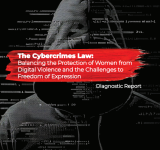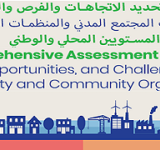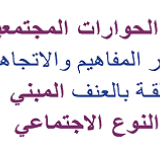Empowering Care Leavers in Jordan - Volume II
The research component of the project aimed to explore the social and legal discrimination faced by YDFT. This study is the second volume of the research and presents the findings of the primary research (field research). It used a mixed methods approach including qualitative peer research with YDFT as well as quantitative research with society members.
The study is divided into the following chapters: Chapter one provides an introduction to their plight,and elaborates on the goals of the project. Chapter two outlines the methodology used in the research,gives some insight on the
research design,the tools used and target groups selected,the ethical considerations,and research validation and limitations. Chapter three expands on the social identity theory which is the theoretical framework adopted in this research. Chapter four presents the research findings in four sub-sections. The first explores the experiences of in care youth. It sheds light on circumstances of admission,the daily routines of in-care youth,their academic life,support mechanisms,challenges and barriers as well as discrimination and stigma. The second section provides in-depth analysis of how youth are geared up to join society by measuring their knowledge and skills in different areas as well as their perceived fears. The third explores the post care experience of YDFT by looking into their daily routines,self-reliance,relationships with society,support mechanisms,challenges and barriers,discrimination and stigma and self-perception. Finally,the last section presents the findings of the quantitative survey with society and explores societal perceptions,attitudes and behaviors towards the different sub-groups of YDFT.
The research concluded that there are a number of attributes associated with YDFT which are mostly negative. The first is the lack of familial ties which increases the risks faced by this group of youth upon their transition into independence and limits their prospects in different aspects of life; the second is isolation and dependency which also limits their interaction with society and contributes to their lack of preparedness to transition as well as increases their chances of being rejected by society; and the third is vulnerability as they are seen as a group that is easily exploited and undermined by society. Furthermore,the research shows that this group of youth has a negative social identity which they try to disassociate themselves from rather than attempt to change to a positive one.


